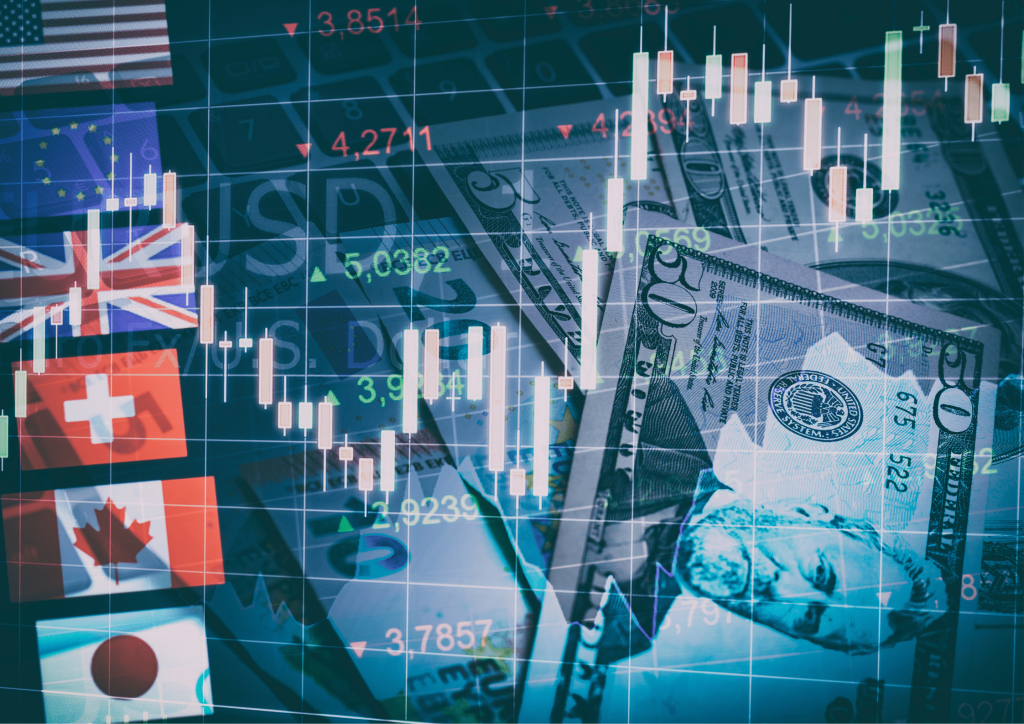Forex trading can be incredibly rewarding, but it’s not without its risks. For beginners, the key to long-term success is effective Forex account management. Did you know that nearly 70% of Forex traders lose money due to poor account management? That’s why it’s critical to start with a plan.
At Asia Forex Mentor, we’ve seen countless new traders make the same mistakes when starting their Forex trading journey. One of the biggest pitfalls? Poor Forex account management. The foreign exchange market, or Forex, can be incredibly rewarding, but without proper management, it can also be financially devastating. Managing your Forex account wisely is not just about minimizing risks; it’s about ensuring long-term growth and sustainability in your trading career.
In this guide, we’ll walk you through 10 essential tips on how to manage your Forex account effectively, especially if you’re just starting out. These tips, refined over years of market experience, will help you navigate the complexities of Forex trading with confidence and prudence. Let’s dive in!
1. Set Clear Financial Goals

Before jumping into any trades, it’s crucial to define your financial goals. What do you want to achieve with Forex trading? Are you aiming to generate a steady income, build wealth, or is it more of a side hobby for you? Having clear, defined goals will guide your trading decisions and help you stay focused.
- Understand your purpose: Are you looking to replace your day job with trading, or are you trading for supplemental income?
- Risk tolerance: Your goals should align with how much risk you’re willing to take. Some traders are okay with high risks for higher returns, while others prioritize safety.
- Time commitment: Forex trading requires time. Ensure your goals reflect the amount of time you can realistically dedicate to market analysis and trade management.
Setting realistic goals will also help you stay grounded when the market doesn’t go your way, which will happen at times. We believe that setting clear, achievable targets is a foundational step toward long-term success.
2. Develop a Robust Trading Plan

A trading plan is essential for maintaining discipline and avoiding emotional decisions during volatile market conditions. Without a trading plan, you’re likely to fall into the trap of impulsive trades, which can quickly spiral into significant losses.
- Strategy development: Will you use technical analysis (reading charts and price patterns) or fundamental analysis (understanding economic indicators)?
- Entry and exit points: Define the conditions under which you will enter and exit trades. This could be based on indicators, support and resistance levels, or news events.
- Risk management: Your trading plan should include how much of your account you are willing to risk per trade. A general rule is to risk no more than 1-2% of your trading capital on a single trade.
- Consistency: Stick to your trading plan consistently to avoid knee-jerk reactions to market movements.
Remember, at Asia Forex Mentor, we teach that a trading plan is not just about strategy; it’s about self-discipline. The market will test your patience, but a strong plan will keep you on track.
3. Use Leverage Wisely
Leverage can be both a blessing and a curse in Forex trading. While leverage allows you to control larger positions with a smaller initial investment, it also magnifies your losses if the market goes against you.
- Understand leverage: Before using leverage, ensure you understand what it is. For example, with 1:100 leverage, you can control $100,000 worth of currency with just $1,000 in your account. But this also means that a 1% movement in the market can either double your account or wipe it out.
- Conservative leverage: As a beginner, it’s wise to use lower leverage, such as 1:10 or 1:20. This limits your exposure to market fluctuations while you learn the ropes.
- Avoid over-leveraging: Using excessive leverage can lead to significant losses, especially in volatile market conditions. Always consider the potential downside of a trade, not just the upside.
At Asia Forex Mentor, we advise new traders to treat leverage with caution. While it can amplify your profits, it can also amplify your losses. Managing leverage is key to Forex account preservation.
4. Implement Stop Loss and Take Profit Orders

The importance of using stop loss and take profit orders cannot be overstated. These tools help you automate your risk management, so you don’t need to constantly monitor the market.
- Stop loss orders: These are designed to limit your losses by automatically closing your position when the price reaches a specific level. For example, if you buy EUR/USD at 1.1000, you might set a stop loss at 1.0950, limiting your loss to 50 pips.
- Take profit orders: These work in the opposite way, closing your position once the price hits a pre-set level of profit. This ensures you don’t miss out on gains by holding onto a position for too long.
- Set realistic levels: Your stop loss and take profit levels should be based on your trading strategy and market volatility. Setting a stop loss too close might get your trade closed out prematurely, while setting it too far could result in significant losses.
- Avoid moving your stop loss irrationally: Once you’ve set your stop loss and take profit orders, stick to them. Don’t move them in response to short-term market noise, as this can lead to impulsive trading decisions.
Using stop loss and take profit orders is essential for protecting your account from major market swings and preserving capital.
5. Constant Monitoring and Evaluation
Even if you have a solid trading plan, regular performance evaluation is essential. Continuous monitoring allows you to refine your strategy, avoid repeating mistakes, and improve your overall trading performance.
- Track performance: Keep a journal or use software to track your trades. Record entry and exit points, profit or loss, and why you made each trade. Over time, patterns will emerge, helping you spot areas for improvement.
- Evaluate strategies: If a particular trading strategy consistently results in losses, it may be time to adjust or discard it. Likewise, analyze what works well and continue to refine it.
- Emotional self-awareness: Part of evaluation includes recognizing how your emotions affect your trades. Were you overconfident after a winning streak? Did you hold onto a losing trade for too long out of fear? Recognizing these behaviors can help you improve emotional control and stick to your plan.
At Asia Forex Mentor, we emphasize the importance of regular evaluation. The market is always evolving, and successful traders evolve with it.
6. Practice with a Demo Account First

One of the best ways to learn without risking real money is by using a demo account. This allows you to get familiar with the Forex market and practice your trading strategy in a real market environment, without the financial risk.
- Familiarization: Use the demo account to understand how your chosen trading platform works. Learn how to place trades, set stop loss and take profit orders, and use different indicators.
- Test strategies: A demo account is the perfect place to test out new trading strategies or tweak your existing one.
- Boost confidence: Trading in a demo account can help you build confidence before transitioning to live trading with real money.
While trading with a demo account doesn’t have the emotional stakes of real money, it’s an invaluable tool for mastering the basics and honing your strategy.
7. Diversify Your Forex Portfolio
Diversification is a tried-and-tested strategy for reducing risk in any financial market, and Forex is no exception. Instead of putting all your capital into a single trade or currency pair, spread your investments across various instruments and strategies.
- Currency diversification: Trade multiple currency pairs to reduce exposure to one particular economy. For instance, if you’re trading EUR/USD, consider adding other pairs like GBP/USD or AUD/JPY to your portfolio.
- Timeframe diversification: Use different timeframes in your trading. Some trades may be long-term based on daily or weekly charts, while others could be short-term based on hourly or minute charts.
- Strategy diversification: Don’t rely solely on one strategy. For instance, you could use a trend-following strategy for trending markets and a range-bound strategy for sideways markets.
At Asia Forex Mentor, we always remind our students: “Don’t put all your eggs in one basket.” By diversifying your portfolio, you can protect yourself from significant market downturns in one particular asset.
8. Choose a Reliable Forex Broker
Your choice of Forex broker can significantly affect your trading experience. An unreliable broker could lead to higher fees, slow execution times, and even put your capital at risk.
- Regulation: Make sure your broker is regulated by reputable financial authorities, such as the Financial Conduct Authority (FCA) or the Australian Securities and Investments Commission (ASIC).
- Trading platform: Ensure the broker offers a reliable, user-friendly trading platform with the tools and features you need. Some popular platforms include MetaTrader 4, MetaTrader 5, and cTrader.
- Spreads and commissions: Compare different brokers for the best spreads (the difference between buy and sell prices) and commission structures. Lower fees will result in higher profits over time.
- Leverage: Choose a broker that offers leverage levels appropriate to your trading style. Some brokers may offer very high leverage, but it’s essential to know your limits and use leverage wisely.
- Customer support: Excellent customer support is critical, especially for beginners. Ensure the broker has a good reputation for quick and helpful responses.
At Asia Forex Mentor, we emphasize the importance of choosing a broker that suits your needs. A reliable broker can make a big difference in your trading success.
9. Manage Your Emotions
One of the hardest aspects of trading is learning to control your emotions. The excitement of winning trades and the frustration of losses can cloud your judgment, leading to irrational decisions.
- Stick to your plan: Avoid making impulsive decisions in response to market volatility. Always follow your trading plan.
- Don’t chase losses: If you’ve just taken a loss, resist the urge to jump back into the market to “win it back.” This often leads to poor decisions and larger losses.
- Take breaks: If you find yourself feeling overwhelmed or stressed, step away from the market. Taking a break can give you the perspective you need to make rational decisions.
At Asia Forex Mentor, we teach that emotional control is just as important as any trading strategy. The market doesn’t care about your emotions—stay disciplined and stick to your plan.
10. Know When to Exit a Trade

Successful Forex trading isn’t just about knowing when to enter a trade—it’s equally about knowing when to exit. Exiting too early can leave potential profits on the table, while exiting too late can turn a winning trade into a losing one.
- Use stop loss and take profit levels: These predefined exit points are your first line of defense. They ensure you exit when the market moves unfavorably or locks in profits when it’s in your favor.
- Recognize market reversal signals: Learn to identify technical patterns or economic news events that could signal a market reversal.
- Avoid holding losing trades: If a trade isn’t going your way, it’s better to cut your losses and move on rather than holding on in hopes of recovery.
At Asia Forex Mentor, we emphasize the importance of strategic exits. Knowing when to exit a trade can protect your capital and ensure steady growth over time.
Also Read: How to Read Forex Charts
Conclusion
Managing your Forex account effectively is the cornerstone of successful trading. From setting clear financial goals and developing a robust trading plan, to using leverage wisely and mastering emotional control, every step contributes to your long-term success. By following these 10 essential tips, you can navigate the Forex market with confidence and prudence, minimizing risks while maximizing rewards.
We believe that Forex trading is a marathon, not a sprint. With the right account management strategies, you can achieve consistent, sustainable growth over time. Remember, Forex isn’t about getting rich overnight—it’s about building a reliable income stream through patience, discipline, and continuous learning.
FAQs
How much money do I need to start trading Forex?
The amount you need to start trading Forex varies depending on your broker and trading goals. Some brokers allow you to open accounts with as little as $10, but it’s wise to start with a more substantial amount (such as $500-$1,000) to manage risk effectively.
How can I manage the risks associated with Forex trading?
Effective risk management involves using a solid trading plan, placing stop loss and take profit orders, using conservative leverage, and diversifying your portfolio. Regularly monitoring your trades and maintaining emotional control are also critical.
When should I switch from a demo account to a live account?
Switch to a live account when you consistently make profits in your demo account, understand the platform, and feel confident in your trading strategy. Start small and gradually increase your capital as you gain more experience.



